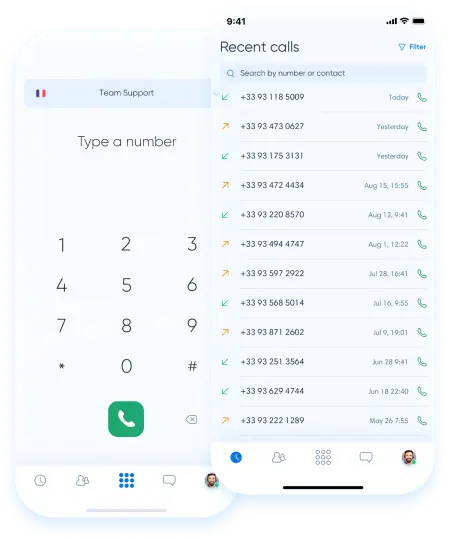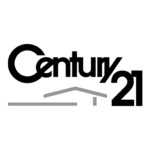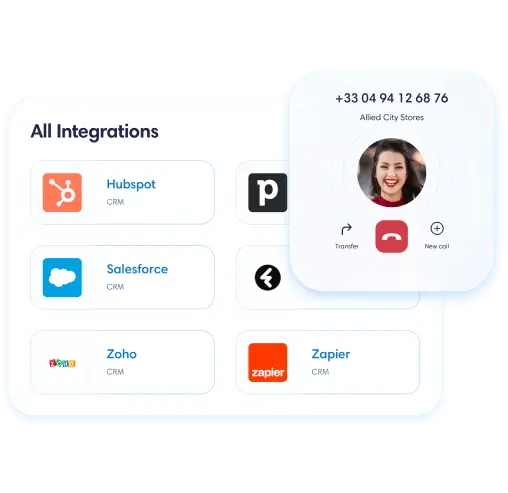
With the number +33 or 0033 as the international entry key, France’s area code system serves as a bridge between the country’s different regions and geographical areas, from the vibrant Île-de-France, marked by the 01 area code, to mobile numbers initiated by 06 and 07, reflecting the bulk of mobile telephony.
This detailed guide explores not only the specifics of the telephone code in France, but also the numbering plan that organizes this vast telephone network, ensuring seamless communication across metropolitan France, overseas departments such as Reunion and Mayotte, as well as special territories such as Saint-Pierre-et-Miquelon and French Polynesia.
For more information on the codes for the French DROM, follow our guide.
Covering both fixed and mobile telephony, our article offers an in-depth understanding of regional and international prefixes, essential for anyone seeking to navigate the French telephone network, whether contacting customer service, making an international call, or simply understanding France’s unique numbering structure.
The structure of the French telephone system
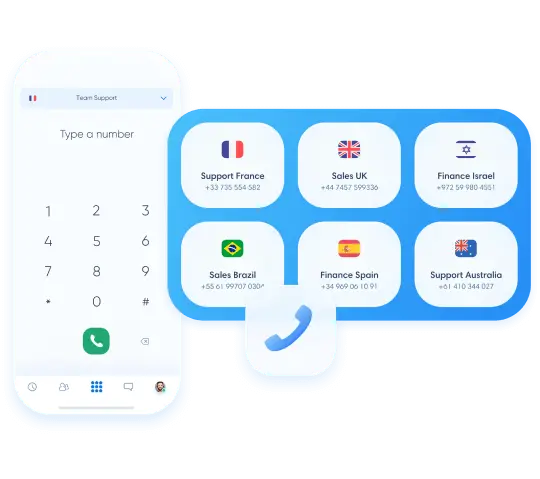
The French telephone system is based on a well-structured numbering plan, adopted in 1996, which uses a ten-digit format.
This plan makes a clear distinction between fixed and mobile telephony, assigning codes 01 to 05 to the different regions of metropolitan France, and reserving the sequences starting with 06 and 07 for cell phones.
For Ile-de-France, for example, dial 01, while numbers corresponding to 03 point to the east and northeast of France, covering areas such as Val-de-Marne and Territoire de Belfort.
This organization not only enables rapid identification of a caller’s geographical area, but also facilitates the management and allocation of telephone numbers by telephone operators and the regulatory authority.
The transition from the eight-digit numbering plan to the current ten-digit system was a major step forward, enabling us to significantly increase the volume of numbers available and meet the growing demand linked to the expansion of mobile telephony and the Internet.
Indeed, this development reflects the constant adaptation of the French telephone network to technological innovations and growing communication needs, ensuring that every subscriber, whether an Internet box user in the Paris region or a cell phone user, has a single, easily identifiable number.
Calling to France: Instructions and Rates
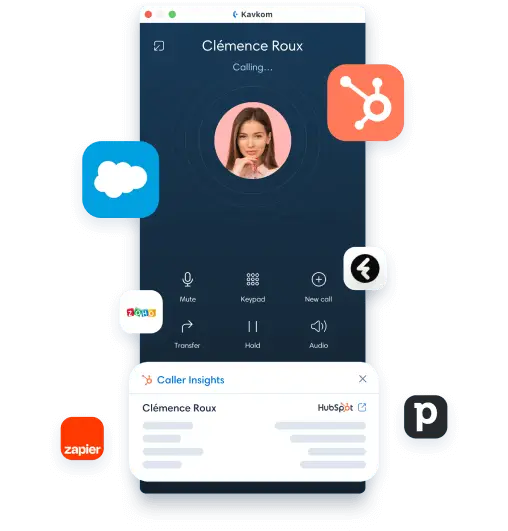
To make a call in France, whether it’s a local connection or an international call, understanding the numbering plan is essential.
Starting a call with +33 or 0033, the international telephone code for France, is necessary for all incoming calls from abroad, followed by the nine-digit telephone number (without the initial zero usually used for local calls), i.e. “+33X XX XX XX XX”.
This rule of omitting the leading zero helps standardize the number format for international calls, facilitating global communication.
Call charges vary considerably depending on whether the call is made within the European Union or from other countries. Within the EU, regulations aim to minimize costs for consumers, making calls to France relatively economical.
Outside the EU, rates can be significantly higher, so look for cheaper alternatives such as VoIP services or instant messaging applications to reduce costs. For those living in France and wishing to make international calls, including to territories such as Andorra, Monaco, or overseas regions such as New Caledonia and French Polynesia, it is advisable to consult telephone operators’ offers, which often include special packages for international calls, to optimize costs.
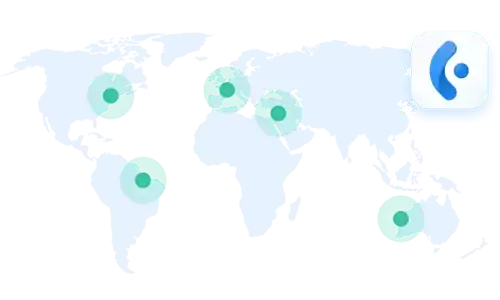
Regional and Mobile Prefixes
Understanding area codes and mobile prefixes is essential for navigating the French telephone landscape. Area codes from 01 to 05 are specifically assigned to different metropolitan regions, making it easy to identify the geographical area of a call. For example, the 01 area code designates the Paris region, covering a large part of the Île-de-France, while the 02 to 05 area codes cover other vast zones such as the north-west, north-east, south-east and south-west of mainland France. These codes play a crucial role in the organization of the telephone network, enabling efficient number allocation and facilitating regional communication.
Our tips for international calls
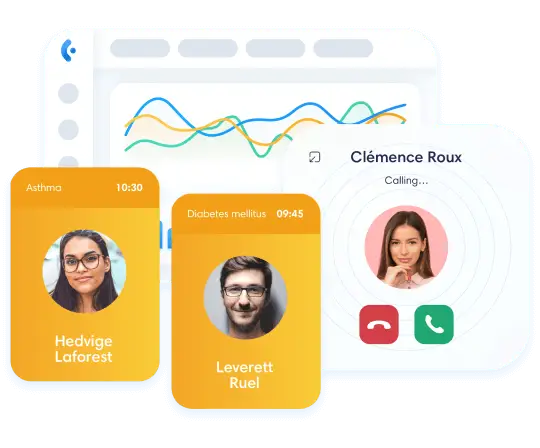
Here is the list by region:
- Area code 01: Île-de-France region.
- Code 02: North-West region (Brittany, Centre-Val de Loire, Normandy, Pays de la Loire) and Indian Ocean (Reunion and Mayotte).
- Code 03: North-East region Bourgogne-Franche-Comté, Grand Est and Hauts-de-France.
- Area code 04: South-East region Auvergne-Rhône-Alpes, Corsica, Provence-Alpes-Côte d’Azur and Occitanie (Languedoc-Roussillon).
- Area code 05: South-West region Nouvelle-Aquitaine and Occitanie (Midi-Pyrénées). Other French overseas departments and territories: Guadeloupe, Martinique and French Guiana.
As far as mobile telephony is concerned, the prefixes 06 and 07 mark a clear distinction from fixed telephony, these sequences being reserved exclusively for cell phone numbers. This distinction helps users immediately recognize the nature of a call, whether it’s a fixed number linked to a specific geographical area, or a mobile number potentially on the move across the country or even abroad.
Understanding these prefixes is particularly important for incoming international calls, where the country code (+33) is followed by the nine-digit number (omitting the initial zero for landline numbers). This enables efficient, error-free communication, whether the call is intended for an office in Sebastopol, a residence in Val-de-Marne, or a cell phone of an individual moving between the northern and south-western regions of France.

Special and emergency numbers
In France, toll-free and emergency numbers play a crucial role in the accessibility of essential services and the safety of citizens. Freephone numbers, often beginning with 0800, are free telephone lines providing access to information or assistance services at no cost to the caller. This free service fosters open communication between companies, institutions and the public, ensuring that assistance is accessible to all, regardless of their economic situation.
Emergency numbers, meanwhile, are designed to provide a rapid and effective response in critical situations. In France, 112 serves as the European emergency number, enabling access to emergency services from any member state of the European Union, including France. Other numbers, such as 15 for medical emergencies, 17 for the police, and 18 for the fire department, are essential to ensure rapid intervention in times of need. The judicious use of these numbers can literally save lives, underlining the importance of a good knowledge and understanding of these services within the community.
These special numbers are an integral component of the French telephone network, reflecting the country’s commitment to the safety and well-being of its residents and visitors. They also illustrate the ability of the telephone system to adapt to the varied needs of society, providing not only everyday means of communication, but also vital access to emergency and assistance services.
New regulations and Bloctel
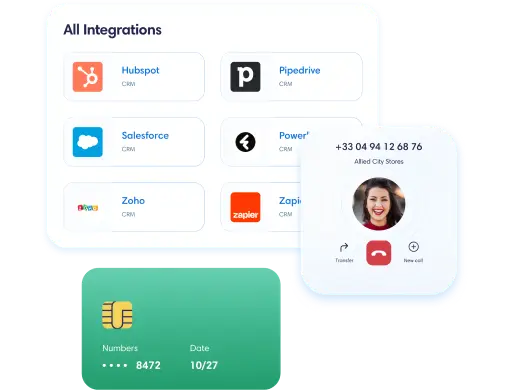
Faced with the challenges posed by unsolicited telephone canvassing, France has strengthened its legislation to protect consumers through the introduction of Bloctel, a free government service enabling citizens to register to avoid receiving canvassing calls on their landline and mobile numbers.
This initiative, backed by the French regulatory authority for electronic communications and postal services (ARCEP), aims to put an end to the intrusive and often undesirable practices of cold calling companies, ensuring greater peace of mind for users.
The new regulations around Bloctel and the fines for companies that breach these rules illustrate France’s commitment to maintaining the integrity and confidentiality of its telephone network. By enabling individuals to control who can contact them, these measures strengthen consumer protection and highlight the balance between commercial needs and respect for privacy.
This regulatory evolution reflects a growing awareness of the importance of personal data protection and the right to peace of mind in the digital age.
By setting clear limits on cold calling, France is positioning itself as a leader in consumer protection in the telecoms sector, showing the way for other countries facing similar challenges.
Innovations in French Telephony
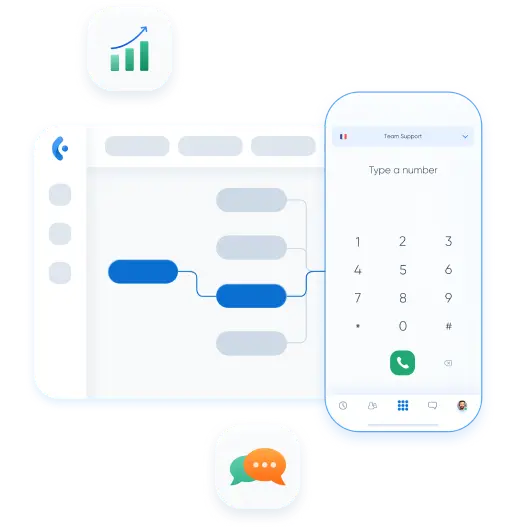
Innovation in the French telephony sector is not limited to technological improvements to handsets or expansion of the telephone network. It also concerns theevolution of area codes and future numbering plans.
With the advent of new technologies such as 5G, theInternet of Things (IoT), and cloud-based telecom services, the demand for more sophisticated phone numbers and communication services continues to grow.
French regulators and telephone operators are therefore constantly looking for solutions to integrate these technological advances while maintaining a coherent and efficient numbering plan. This could include adding new prefixes for mobile services, expanding numbers dedicated to connected objects, or even completely overhauling the numbering system to accommodate future innovations.
This dynamic of innovation underlines France’s ability to adapt to the rapidly changing global technological landscape, ensuring that its telephone network remains not only functional but also in step with the needs and expectations of consumers and businesses. As the boundaries between mobile telephony, fixed internet and other forms of digital communication become increasingly blurred, France continues to play a leading role in exploring new ways of connecting people, not only within its own borders, but also with the rest of the world.
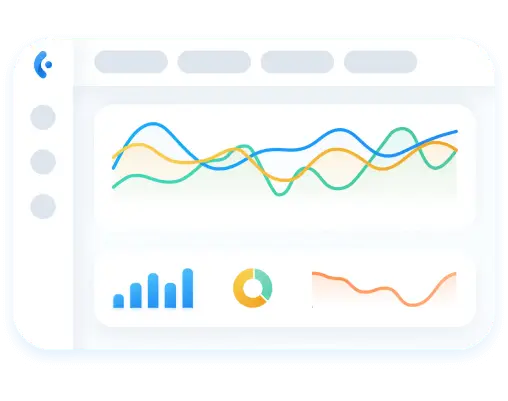
This concludes our in-depth exploration of telephone codes in France. From an introduction to the complex structure of the French telephone system, through tips for local and international calls, to the latest innovations and regulations in the sector, this guide aims to demystify the often complicated aspects of telephone communication in France. Taking into account the different regions, mobile telephony, and even overseas territories, we’ve aimed to provide a comprehensive resource for anyone seeking to understand and navigate the French telephone network.
Whether you need to contact a friend in the Paris region, reach a customer service department based in the southwest, or plan a trip to faraway territories like New Caledonia, this guide offers the keys to effective communication. With technology and communication practices constantly evolving, keeping up to date with the latest developments is crucial.
We hope this guide will serve as a valuable reference for all your communication needs in France, facilitating connections and enriching your interactions in this dynamic and diverse country.
